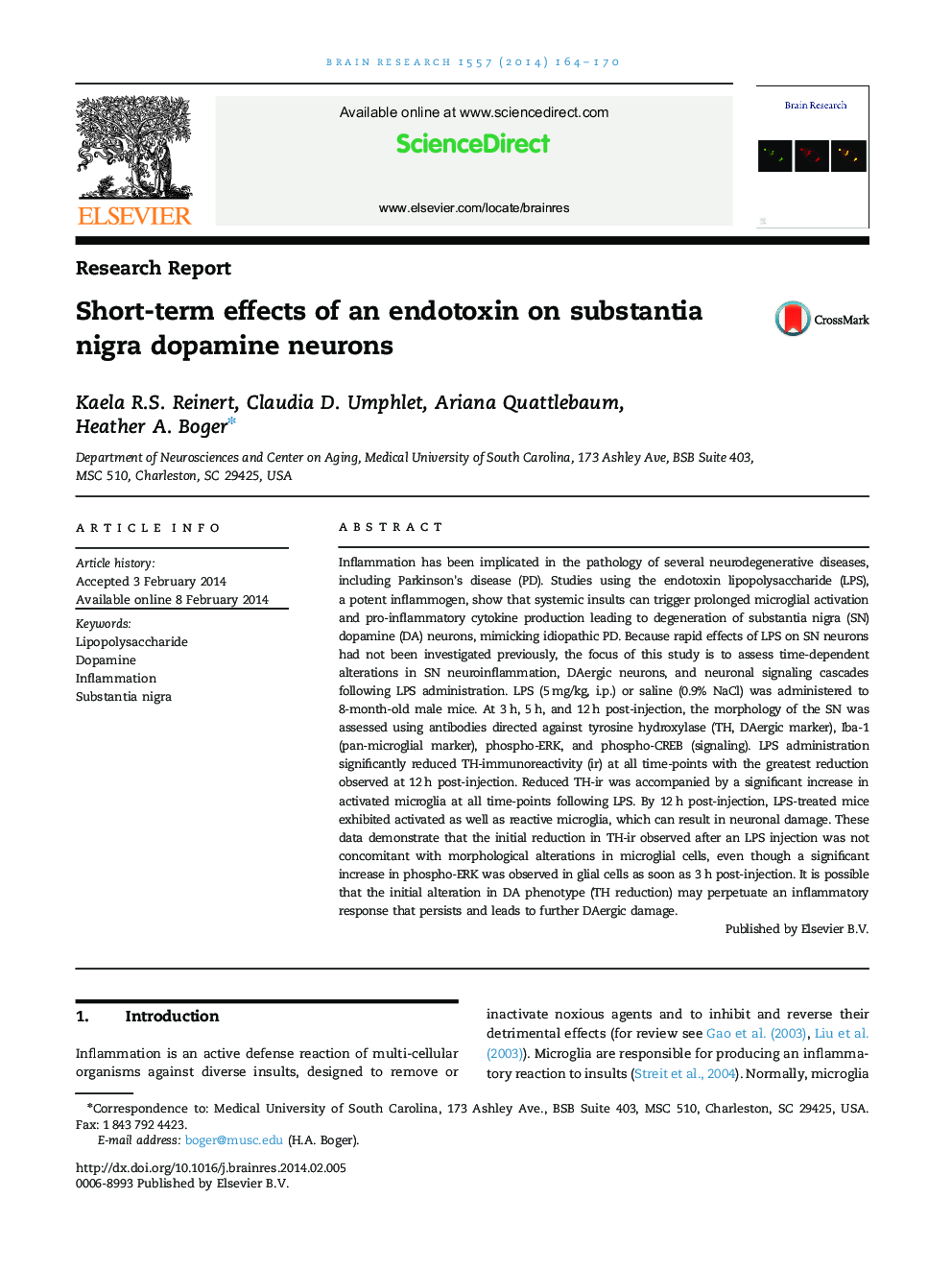| کد مقاله | کد نشریه | سال انتشار | مقاله انگلیسی | نسخه تمام متن |
|---|---|---|---|---|
| 6263402 | 1613882 | 2014 | 7 صفحه PDF | دانلود رایگان |
عنوان انگلیسی مقاله ISI
Short-term effects of an endotoxin on substantia nigra dopamine neurons
ترجمه فارسی عنوان
اثرات کوتاه مدت اندوتوکسین در نورونهای دوپامین مغناطیسی
دانلود مقاله + سفارش ترجمه
دانلود مقاله ISI انگلیسی
رایگان برای ایرانیان
کلمات کلیدی
لیپوپلی ساکارید، دوپامین، التهاب توده سیاه،
موضوعات مرتبط
علوم زیستی و بیوفناوری
علم عصب شناسی
علوم اعصاب (عمومی)
چکیده انگلیسی
Inflammation has been implicated in the pathology of several neurodegenerative diseases, including Parkinson׳s disease (PD). Studies using the endotoxin lipopolysaccharide (LPS), a potent inflammogen, show that systemic insults can trigger prolonged microglial activation and pro-inflammatory cytokine production leading to degeneration of substantia nigra (SN) dopamine (DA) neurons, mimicking idiopathic PD. Because rapid effects of LPS on SN neurons had not been investigated previously, the focus of this study is to assess time-dependent alterations in SN neuroinflammation, DAergic neurons, and neuronal signaling cascades following LPS administration. LPS (5 mg/kg, i.p.) or saline (0.9% NaCl) was administered to 8-month-old male mice. At 3 h, 5 h, and 12 h post-injection, the morphology of the SN was assessed using antibodies directed against tyrosine hydroxylase (TH, DAergic marker), Iba-1 (pan-microglial marker), phospho-ERK, and phospho-CREB (signaling). LPS administration significantly reduced TH-immunoreactivity (ir) at all time-points with the greatest reduction observed at 12 h post-injection. Reduced TH-ir was accompanied by a significant increase in activated microglia at all time-points following LPS. By 12 h post-injection, LPS-treated mice exhibited activated as well as reactive microglia, which can result in neuronal damage. These data demonstrate that the initial reduction in TH-ir observed after an LPS injection was not concomitant with morphological alterations in microglial cells, even though a significant increase in phospho-ERK was observed in glial cells as soon as 3 h post-injection. It is possible that the initial alteration in DA phenotype (TH reduction) may perpetuate an inflammatory response that persists and leads to further DAergic damage.
ناشر
Database: Elsevier - ScienceDirect (ساینس دایرکت)
Journal: Brain Research - Volume 1557, 4 April 2014, Pages 164-170
Journal: Brain Research - Volume 1557, 4 April 2014, Pages 164-170
نویسندگان
Kaela R.S. Reinert, Claudia D. Umphlet, Ariana Quattlebaum, Heather A. Boger,
